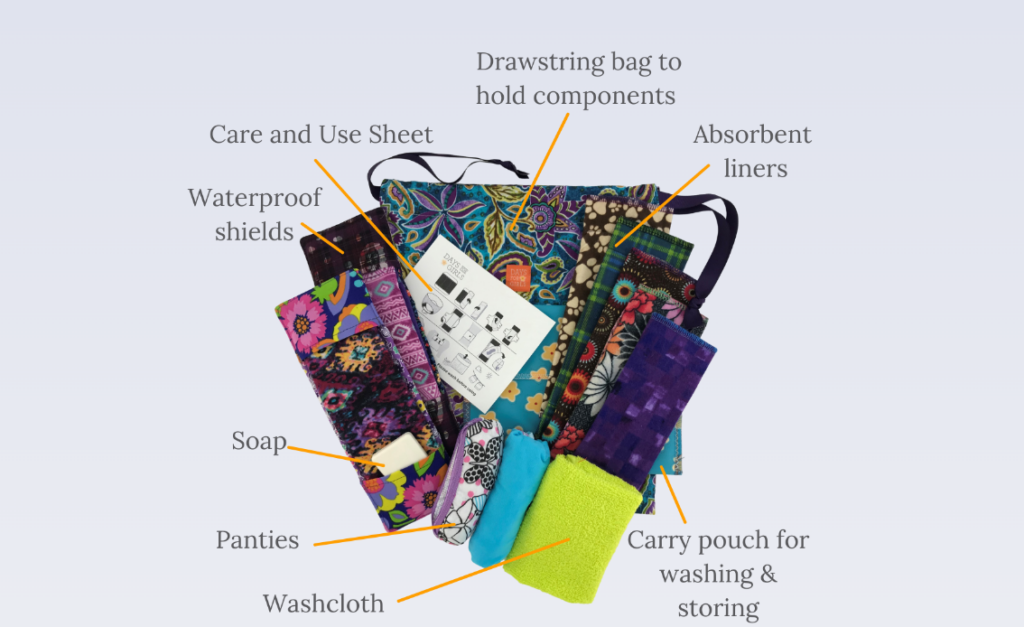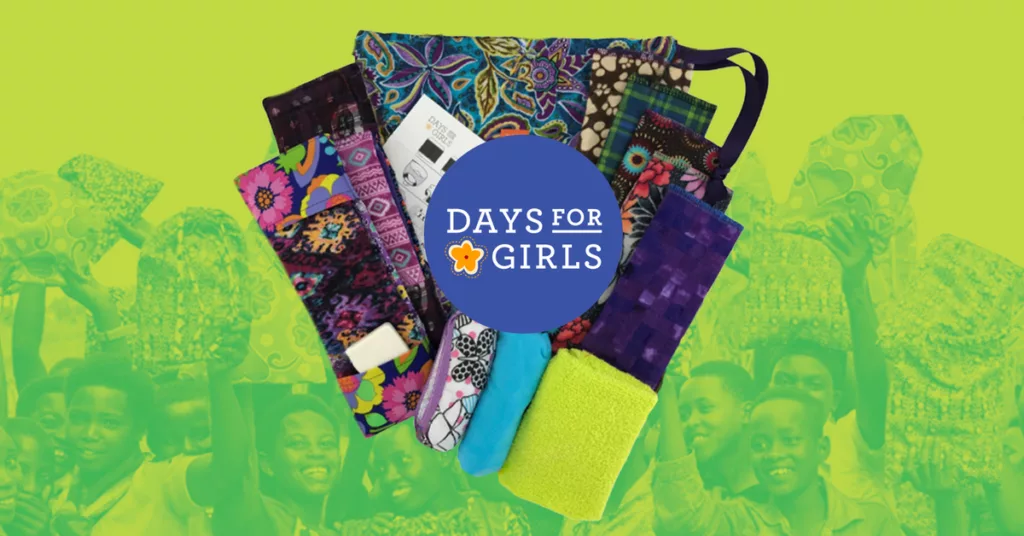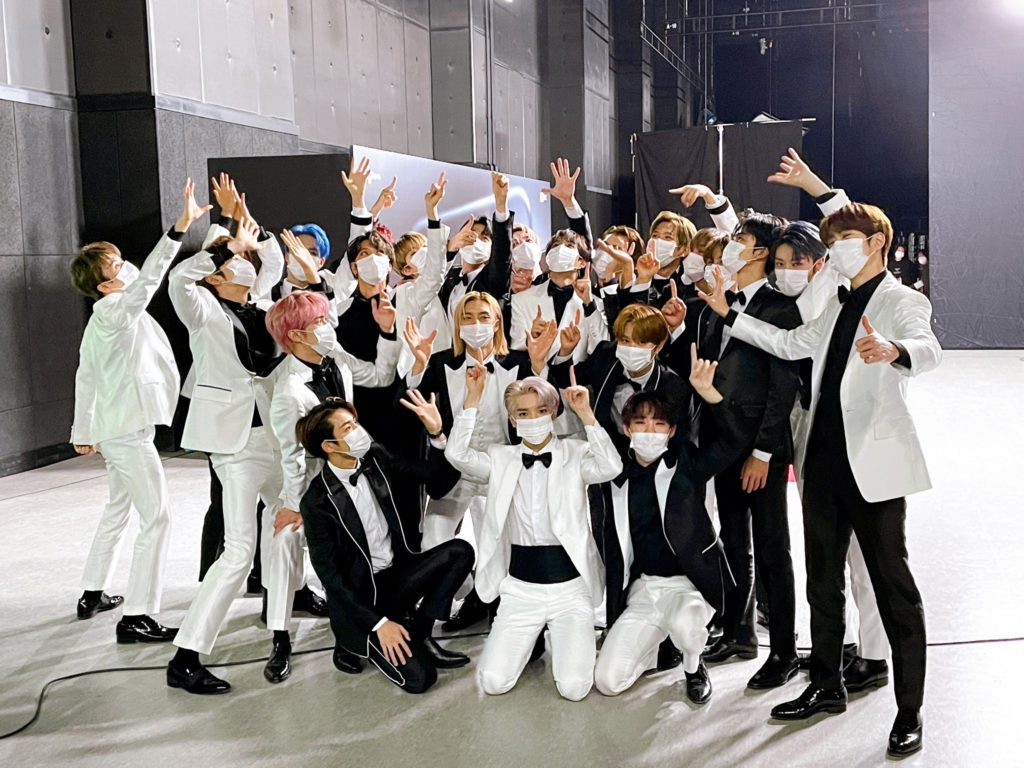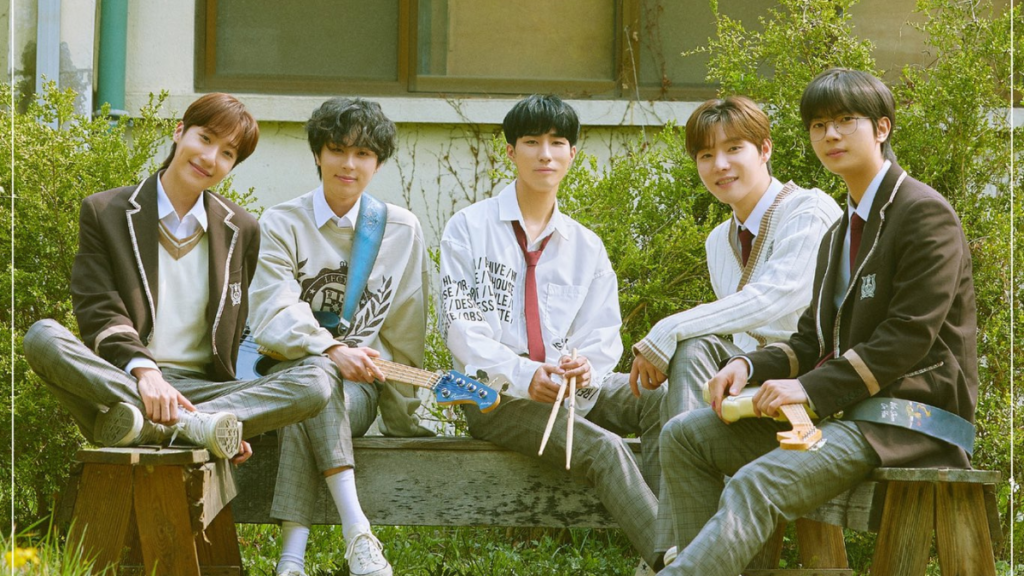In high school, a trip to Kenya ignited a spark within Ellie Hart. There, Hart and her mom participated in a women’s conference and collaborated with the Madison, South Dakota chapter of Days for Girls to distribute essential period materials.
Most valuable to her experience, however, was the story of a girl who could only rely on prostitution due to her inability to afford menstrual products. Hearing this struck Hart’s passion for period equity, and now, the decision to establish a Days for Girls chapter at the University of South Dakota.
“That’s when it really hit me; like wow, this is bigger than just comfortability, and even decent standards of being able to take care of yourself. It’s even greater than that, it’s a whole system and the fact that a lot of girls stopped going to school because they can’t continue going when they get their period. This is not only making a difference for a girl once a month, this is affecting her entire life,” Hart shared with EnVi over Zoom.
According to a 2021 study conducted by U by Kotex, two in five people in the United States have struggled to purchase period products. This number demonstrated a 35% increase from the brand’s initial findings in 2018. In response to these issues, Days for Girls has emerged to address the intersection of menstrual health with poverty, education, and gender equality. By developing global partnerships, educational efforts, sustainable solutions, and initiatives that shatter limitations for those who menstruate, Days for Girls strives to make a lasting impact worldwide, as the organization has helped over 3 million lives.
Global Partnerships and Intersectional Impact
Driven by a mission to bring menstrual equity to every corner of the world, Days for Girls operates on a global scale, much like the opportunities Hart experienced in extending aid to marginalized communities overseas.
Currently, Days for Girls has over 1,000 chapters globally within 145 countries and counting, expanding financial support through strategic partnerships with companies such as PopSockets and Revlon. They also establish year-long projects that reach communities across Cameroon, Mexico, Palestine, and more with the help of Doctors Without Borders and Lifting Hands International.
Furthermore, Days for Girls addresses the systemic barriers to period equity worldwide by advocating for global policies like free, public access to period products in schools and workplaces, research on menstrual leave policies, education on gender-based violence, women’s reproductive health, and more.
Establishing Local Chapters
Hart’s journey of founding a Days for Girls chapter is a similar path that many individuals have taken to initiate change at a grassroots level. For Hart, finding a club advisor and recruiting members through infographics, social media, and word of mouth were relatively effective in catching the attention of those interested in the cause.
These chapters function similarly to university clubs; members and volunteers can choose to have regular meetings or designate certain days to conduct workshops, provide menstrual health education, and create DIY sustainable hygiene kits for other students. Inside each of these DIY kits is a draw-string bag that includes a special Days for Girls pad – a colorful, washable menstrual pad containing a waterproof shield and two absorbent liners. The pad is reusable and snaps around one’s underwear, making it comfortable and sustainable. The kit also includes a carry pouch, a washcloth, a small bar of soap, an ovulation chart, and directions to help further foster menstrual education.
“What I did is I first reached out to women [in] my sorority and asked if anyone would be interested in joining a club like this, and my sorority has some really amazing women who are all service-minded,” Hart said. “I actually had a lot of girls reach out and say that they would love to be part of this.”

The organization’s Pittsburgh chapter relies on fundraising efforts and community donations to sustain its operations, leader Karie Charlton told EnVi over email. Also known for her blog Period Pastor, Charlton advocates for the intersections of faith and feminism as her team of volunteers gathers weekly at the First United Methodist Church of Pittsburgh, where they assemble hygiene kits and engage with local communities.
Whether through hosting events, soliciting sponsorships, or seeking in-kind contributions, the members’ collective effort plays a crucial role in supporting the organization’s mission to make a significant impact on the lives of menstruating people worldwide.
Uncomfortable Conversations
One key objective of Days for Girls is to foster dignity and agency among women by challenging societal taboos surrounding menstruation. As pastor and leader of a chapter functioning within a faith-based institution, Charlton felt a calling to connect faith and feminism within service. “The pastor part of me realized that when people are comfortable making washable pads and talking about women’s health, they are willing to talk about other uncomfortable subjects, like faith and spirituality,” Charlton wrote in her blog for the Young Clergy Women International magazine.
As a state with a more “traditional” community, Hart also felt that pushing for her club was certainly a stretching experience, as most people haven’t had much exposure to conversations surrounding periods. “I’ve had someone tell me, ‘That’s really none of my business what women do with their personal lives,’ and ‘We shouldn’t be talking about it because that’s people’s personal health.’ Yeah, there’s always going to be people like that, but I think that it takes having some of those awkward conversations to really start changing the environment and how we handle those topics,” she shared.
Challenging Societal Taboos
According to the aforementioned study by Kotex, 68% of people agree that period poverty is a public health issue. Yet, only 4% of Americans are aware of a local resource where free or reduced-cost period supplies are available. Due to this, Days for Girls pursues advocacy work to shift social norms through campaigns and partnership strategies that can change town, workplace, and more policies that will further uplift women.
For one, inspired by New York City’s provision of free menstrual hygiene supplies to prisons, Janet Schiller, leader for the Rockville, Maryland chapter, initiated legislation in her state. After proposing the legislation with Delegate Aruna Miller, they successfully passed a law in May 2017, making Maryland the first U.S. state to provide period supplies statewide.
Days for Girls continues to expand its operations to more corners of the world with the help of dedicated volunteers, advocates, and supporters. By addressing the systemic barriers to period equity and challenging societal taboos, they are paving the way for a future where menstruation is not a barrier to health, education, or opportunity.
Want to read more about history-making women? Read our story on nine trailblazing Asian women in art and music here.




